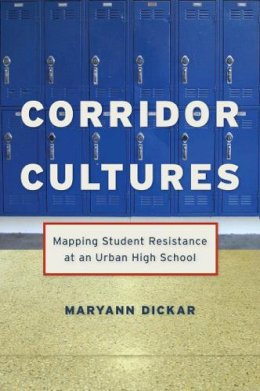
Stock image for illustration purposes only - book cover, edition or condition may vary.
Corridor Cultures
Maryann Dickar
€ 36.28
FREE Delivery in Ireland
Description for Corridor Cultures
Paperback. Examines the ways in which school spaces are culturally produced, offering insight into how urban students engage their schooling Series: Qualitative Studies in Psychology. Num Pages: 240 pages, black & white illustrations. BIC Classification: JMC; JMH; JNM. Category: (P) Professional & Vocational; (UP) Postgraduate, Research & Scholarly; (UU) Undergraduate. Dimension: 221 x 150 x 15. Weight in Grams: 272.
For many students, the classroom is not the central focus of school. The school's corridors and doorways are areas largely given over to student control, and it is here that they negotiate their cultural identities and status among their peer groups. The flavor of this “corridor culture” tends to reflect the values and culture of the surrounding community.
Based on participant observation in a racially segregated high school in New York City, Corridor Cultures examines the ways in which school spaces are culturally produced, offering insight into how urban students engage their schooling. Focusing on the tension between the ... Read more
Product Details
Format
Paperback
Publication date
2008
Publisher
New York University Press United States
Number of pages
240
Condition
New
Series
Qualitative Studies in Psychology
Number of Pages
240
Place of Publication
New York, United States
ISBN
9780814720097
SKU
V9780814720097
Shipping Time
Usually ships in 7 to 11 working days
Ref
99-50
About Maryann Dickar
Maryann Dickar is Assistant Professor in the Department of Teaching and Learning at the Steinhardt School of Education, New York University.
Reviews for Corridor Cultures
Dickar’s analysis is sophisticated without resorting to jargon-laden prose, and should be relevant to and consumable by students, teachers, administrators, policy makers and academics interested in urban education reform, critical analyzes of race, class and gender, and domination and resistance. Above all, this work has important implications for understanding the processes by which urban youth and their schools negotiate their ... Read more
